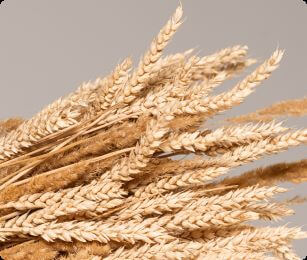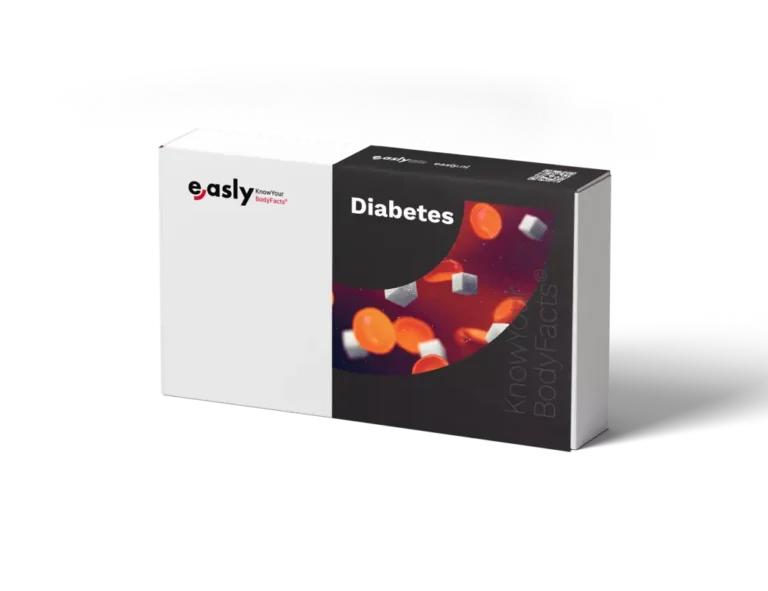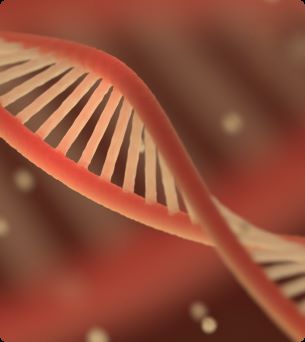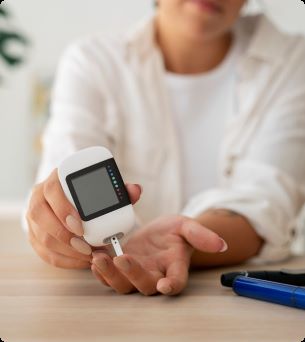They give bread its structure and products containing grains are packed with them. But all that glitters is not gold. Gluten can also cause sticky stools, stomach issues, or a chronically inflamed gut. It’s time to dive deep into the world of gluten and gluten allergy (celiac disease).

Gluten Explained
Let’s start at the beginning. What exactly is gluten? Gluten refers to a group of proteins found in the grain (also known as endosperm) of cereals such as wheat, spelt, and durum. More than half of the grain consists of gluten. Like the yolk in a chicken egg, which provides nutrition to the embryo, gluten is meant to nourish the germ. Gluten is rich in amino acids such as asparagine, proline, and glutamine. In Latin, gluten means “glue,” and that’s a well-chosen name because when kneading bread dough, gluten gives the dough firmness and elasticity.


Not everyone can tolerate gluten in their diet. About 1% of the population—nearly 180,000 people!—suffer from a gluten allergy/celiac disease.
What is Celiac Disease?
Celiac disease (gluten allergy) is a chronic autoimmune disorder that primarily causes inflammation in the lining of the small intestine. However, the disease can manifest anywhere in the body, such as the skin, joints, and brain. The disease is hereditary and can be triggered by gluten intake, after which the body produces antibodies.

Common symptoms of celiac disease include abdominal pain, foul-smelling and sticky stools, diarrhea, fatigue, and a bloated abdomen. Ignoring these symptoms can have unpleasant consequences, such as weight loss, stunted growth, osteoporosis, and anemia. If the inflammatory reactions persist for too long, treatment by a specialist is necessary.
Is Gluten Sensitivity the Same as Celiac Disease?
In the past, the terms celiac disease and gluten sensitivity were often used interchangeably. However, celiac disease involves more than just sensitivity. Some of the symptoms of celiac disease also occur in gluten sensitivity. The main difference, however, is that with gluten sensitivity, no antibodies are produced, and the typical intestinal damage is absent. The symptoms disappear with a gluten-free diet.


The Symptoms of Gluten Allergy (Celiac Disease)
People with a gluten allergy typically experience stomach and intestinal issues after eating gluten. As mentioned earlier, this can include abdominal pain, diarrhea, or constipation. The stool may also start to smell bad or become greasy, frothy, and sticky. The latter can be noticed by the increased “skid marks” left in the toilet. It is also possible for other allergic reactions to occur, such as skin rashes. In some cases, these reactions can be so severe that medical attention is required.



The symptoms mentioned above are not exclusive to celiac disease. To be sure that it is a gluten allergy, it is advisable to take a gluten allergy test.
Risk Factors
Celiac disease is often hereditary. This means there is a greater chance of developing a gluten allergy if one of your family members also has it. Additionally, the risk of developing a gluten allergy is higher in people with an overactive (hyperthyroidism) or underactive (hypothyroidism) thyroid. Diabetes also increases the likelihood of having a gluten allergy. Celiac disease can develop at any point in your life, even at a later age.
Gluten Allergy: What to Eat/Not Eat
What can you eat and what should you avoid with celiac disease? Those who suffer from a gluten allergy or are sensitive to gluten should follow a gluten-free diet. Avoid these foods:
- Products containing wheat (pancakes, couscous, pastries, and bread)
- Spelt and Khorasan wheat
- Barley
- Barley (don’t drink beer)
- Rye




Many products do not contain gluten, which you can safely eat:
- Potatoes
- Nuts
- Yogurt varieties
- Seeds
- Eggs
- Milk
- Peanuts
- Soy
- Herbs and spices
- Oil and vinegar
- Corn
- Quinoa
- Peas
- Tapioca
- Poultry
- Cheese
- (Brown) rice
- Coffee, tea, soft drinks
This is, of course, not the complete list. Additionally, many ready-made products may contain gluten. Therefore, read the labels carefully and check the website of the Dutch Celiac Association for more nutritional information.
Related tests



The Impact on Your Health
Gluten allergy/celiac disease can have very unpleasant consequences for your health. We already mentioned the physical symptoms. In particular, inflammation in the lining of the small intestine can interfere with the absorption of nutrients. A possible consequence can be that you feel fatigued, lose weight, develop anemia, or do not absorb enough vitamins. The latter is harmful because vitamins have important functions in the human body, such as the production of blood cells and immune cells. Vitamins are also essential for the development of the skeleton and the brain.



To prevent these harmful effects, it is important to start following a gluten-free diet as soon as possible when diagnosed with celiac disease. Incidentally, some people do not experience any symptoms despite having celiac disease.
Can You Prevent a Gluten Allergy?
You cannot prevent celiac disease, as the chance of developing it is genetically determined. Not everyone with this genetic predisposition will develop celiac disease, but the likelihood is higher. Type 1 diabetes has a similar genetic background. Therefore, it is not uncommon for people to have both type 1 diabetes and celiac disease.


Gluten Allergy Screening: Blood Test
a good idea to undergo an allergy screening to determine if you might have a gluten allergy/celiac disease. It doesn’t have to be complicated. The Allergy Center of Easly is a service you can order online, without a referral or waiting list. You will receive a test kit sent to your home. This is followed by an online video consultation with a doctor from Easly. Based on this conversation, it will be determined which allergens will be tested. You can then have some blood drawn at a PMO collection point near you, and you will receive the results of your test in the online portal or the Easly app. With this knowledge in hand, you can start addressing your symptoms.









